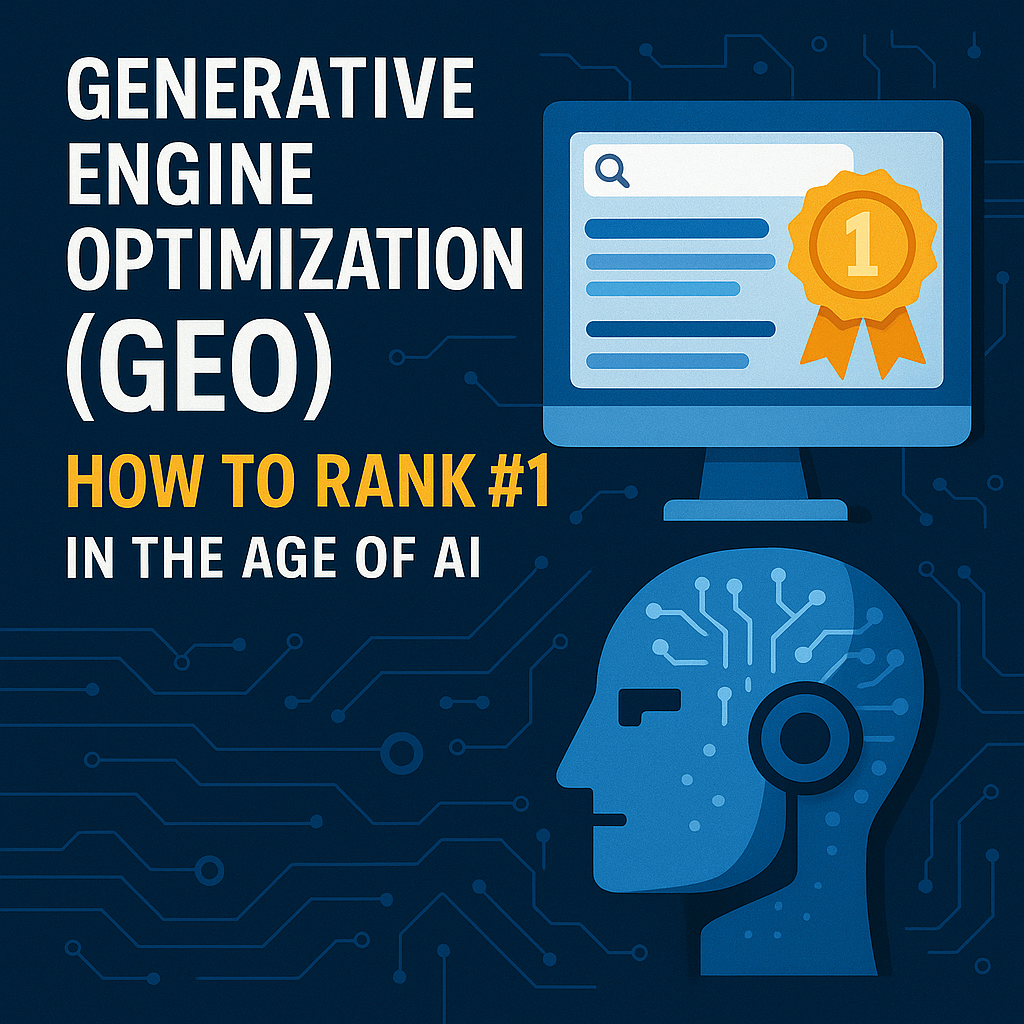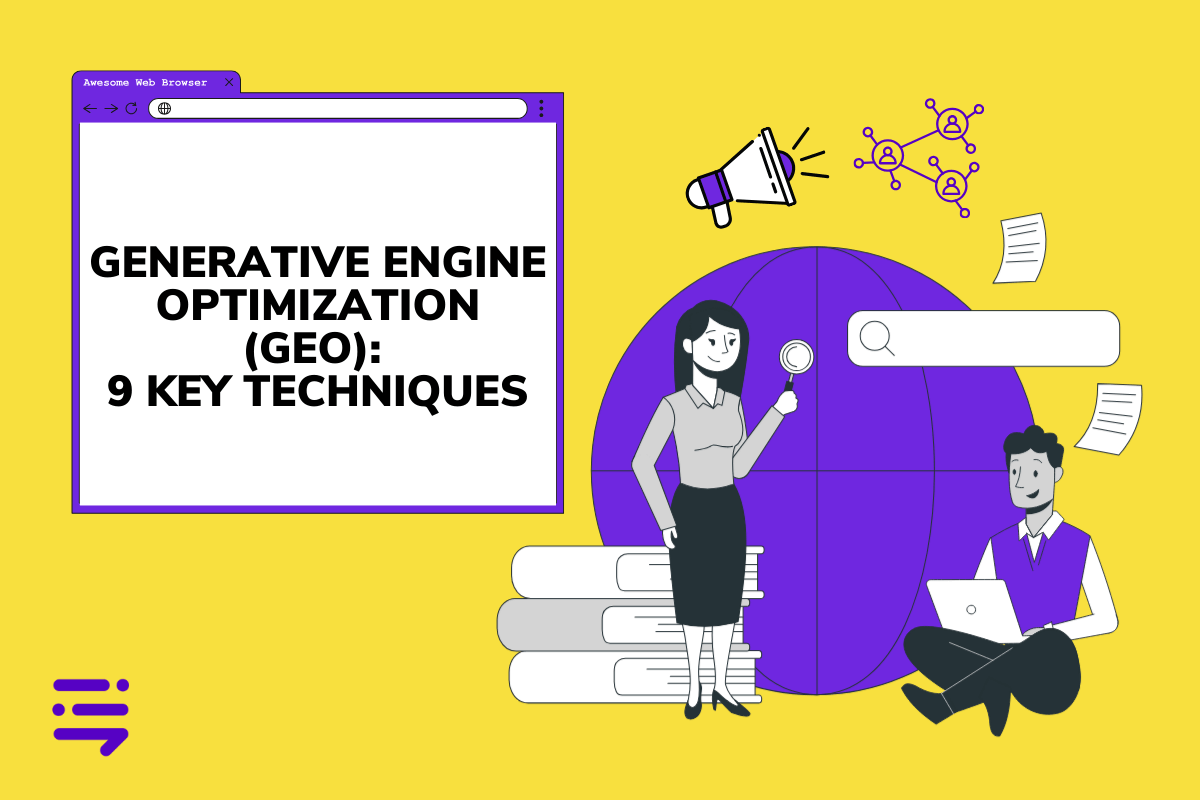Generative Engine Optimization (GEO): How to Rank 1in the Age of AI
In today’s search environment, traditional SEO no longer guarantees results. The shift to AI-driven search platforms, conversational agents, and multimodal interfaces means businesses must optimize for intelligent engines, not just keyword-matching algorithms. Enter Generative Engine Optimization (GEO). GEO is the art and science of ensuring your brand and content appear in AI-generated answers, chatbots, and voice searches. Understanding and adapting to GEO is crucial for staying visible in an AI-first search world—especially as AI-powered SEO services in India set new standards for smart optimization.
Understanding Generative Engine Optimization (GEO) in the Age of AI
Generative Engine Optimization centers on influencing how AI models surface, cite, and present your content—not just how traditional search engines rank web pages. Where old-school SEO focused on backlinks and keyword density, GEO is about being picked by generative models that operate more like knowledge engines.

Core Principles of GEO
* Semantic Optimization: Move beyond matching keywords. Optimize for meaning, entity relationships, and real-world context.
* Intent Matching: Target human questions and problems, not just search queries. AI looks for content that answers user intent thoroughly and clearly.
* AI-Driven Ranking Factors: Models weigh structured data, source authority, clarity, and citation readiness. Reputation and up-to-date, factually correct information matter more than ever.
How AI is Changing Search Engines
AI models like GPT, Gemini, and Perplexity don’t just index web pages. They generate responses by synthesizing information, understanding context, and tracking knowledge evolution.
* Context and Relevance: AI ranks content based on how well it fits the prompt, entity relationships, and cross-references from other reputable sources.
* Natural Language Processing (NLP): Models prefer content written in a conversational, clear, and logical structure.
* User Intent: AI modifies answers based on detected user goals, making the clarity and depth of your content essential for citation.
Actionable GEO Techniques for Better Rankings
Succeeding with GEO doesn’t mean abandoning SEO best practices, but you must go further. Here’s how to optimize specifically for AI engines.

AI Content Optimization Strategies
* Prompt Engineering: Tailor headings and subheadings to answer real user questions and prompts.
* Structured Summaries: Place concise, fact-rich summaries at the start of pages—AI models prioritize quick, clear answers.
* Entity Optimization: Reference known entities (brands, products, places) to align content with how AI connects topics.
* Originality and Authority: Offer analysis, insights, or expert opinions that can’t be found elsewhere. Cite credible data and studies, and keep content fresh.
Technical Implementations for GEO
* Structured Data and Schema Markup: Use schema to highlight key information (FAQs, reviews, business details) that AI models rely on to verify and cite your content.
* Technical SEO: Optimize site speed, mobile-friendliness, and clean server configurations. Check for crawl errors and fix broken links to improve content discoverability.
* Content Indexing Controls: Appropriately use robots.txt and meta tags to manage what AI bots can access.
* Security: Adopt HTTPS and protect APIs to prevent unauthorized scraping or data breaches that may affect your site’s credibility with AI engines.
Continuous Improvement with Analytics and Human Oversight
* Regular GEO Audits: Monitor your appearance in AI answers and featured snippets. Adjust content to address gaps or outdated information.
* User Engagement Tracking: Watch for changes in click-throughs from AI-powered platforms or decreased reference rates.
* Human Review: Combine automated analytics with hands-on review to guarantee accuracy, context, and a genuine voice.
AI-Powered SEO Services in India: Trends and Advantages
India’s SEO landscape is embracing AI at a rapid pace. Companies are evolving traditional SEO into a discipline that blends technical skill, AI knowledge, and localized expertise. Top firms use advanced models and analytics for smarter ranking and broader reach.
* Speed: AI finds keyword opportunities and technical gaps faster than any human team.
* Personalization: Services create dynamic content based on user location, profile, and real-time needs.
* Voice and Multimodal Search: Indian agencies are at the forefront of optimizing for voice queries, image search, and cross-device journeys.

Key Features of India’s AI SEO Solutions
* Natural Language Processing (NLP): Faster, more nuanced keyword and topic analysis, prioritizing semantic meaning.
* Predictive Analytics: Use of historical data to predict trends and search interest before they peak.
* Hierarchical Clustering: AI organizes topics and subtopics into structures that AI engines naturally favor and understand.
* Data-Driven Keyword Analysis: Big data models sift billions of searches for hidden high-converting keywords and content gaps.
Benefits for Indian Businesses
* Improved Rankings: Indian brands using GEO see ranking jumps, as high as 300% more traffic within four months in some sectors.
* Targeting and User Experience: Personalized content improves engagement and lowers bounce rates, resulting in higher conversions.
* Adaptability: AI-supported sites adjust to new search trends, such as video or voice-first discovery, much faster than traditional competitors.

Conclusion
Staying visible in AI-powered search isn’t optional. Best businesses must move beyond classic SEO, adopting GEO to secure citations and references from today’s intelligent engines. India’s AI-powered SEO services are leading this wave, offering advanced solutions that combine semantic content, strong technical execution, and continuous optimization.
To grow your visibility, focus on structured data, user intent, and clear, trustworthy content. Adopt AI-centric approaches and partner with forward-thinking experts. The brands that adapt to GEO now will own tomorrow’s search results.






Trackbacks/Pingbacks